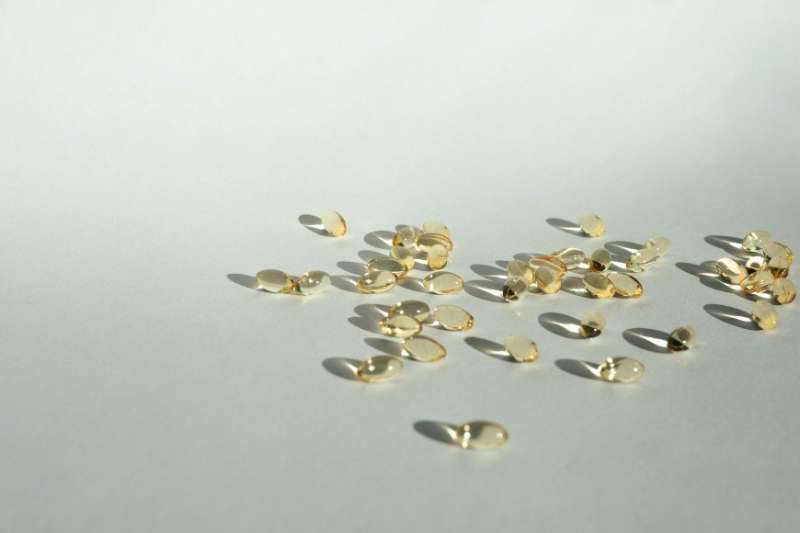This article has been reviewed according to Science X's editorial process and policies. Editors have highlighted the following attributes while ensuring the content's credibility:
fact-checked
peer-reviewed publication
proofread
A larger dose of vitamin D may decrease psychiatric symptoms at school age

It is estimated that every eighth child suffers from a mental health disorder. Several predictors of children's mental problems have been identified, but much remains uncharted. Previous research suggests that low vitamin D levels in early childhood may be one factor increasing the risk of mental health problems in later life. A recent Finnish study, now published in JAMA Network Open, presents new information on the association between vitamin D intake and mental health.
A new study by a team of Finnish researchers has investigated whether a daily vitamin D3 supplement higher than the recommended dose in early childhood reduces the risk of psychiatric symptoms at school age.
The study is part of the Vitamin D Intervention in Infants (VIDI) clinical trial, which investigates how early vitamin D3 intervention affects children's growth and development. In the research, children were randomized as two groups, one receiving the daily standard dose of 10 micrograms and the other triple the amount—30 µg—of vitamin D. The children received the supplementation daily from 2 weeks to 2 years of age.
The children were followed up and the latest monitoring point occurred when they were 6- to 8-year-olds. In the latest follow-up phase, the parents of 346 children assessed their child's psychiatric symptoms using a questionnaire.
The study found that daily vitamin D3 supplementation above the standard dose reduced the risk of internalizing problems at school age. In other words, children who received the higher dose had less parent-reported depressed mood, anxiety, and withdrawn behavior than children who received the standard dose.
Psychiatric symptoms as reported by the parents
According to the research results, parents reported clinically significant internalizing problems in 11.8% of the children who had received the standard dose of daily vitamin D supplement of 10 µg until the age of 2 years. Of the children who received the triple vitamin D supplement, 5.6% were reported to have similar problems.
"Our results suggest that a higher dose of vitamin D3 supplementation during the first years of life may reduce the risk of internalizing psychiatric symptoms in late preschool and early school age," says Samuel Sandboge, Postdoctoral Research Fellow at Tampere University.
"The results and their potential implications are interesting, but further research is needed to confirm the results. In the interpretation of the results, we must note, among other things, that we studied the psychiatric symptoms only as parent-reported. Furthermore, the participants of the study were children with Nordic ancestry living in Finland who had good levels of vitamin D," Sandboge says.
The researchers did not detect differences in externalizing problems, such as aggressive behavior and rule breaking. Moreover, no differences between the overall extent of psychiatric symptoms were found in the children.
More information: Samuel Sandboge et al, Effect of Vitamin D3 Supplementation in the First 2 Years of Life on Psychiatric Symptoms at Ages 6 to 8 Years, JAMA Network Open (2023). DOI: 10.1001/jamanetworkopen.2023.14319



















